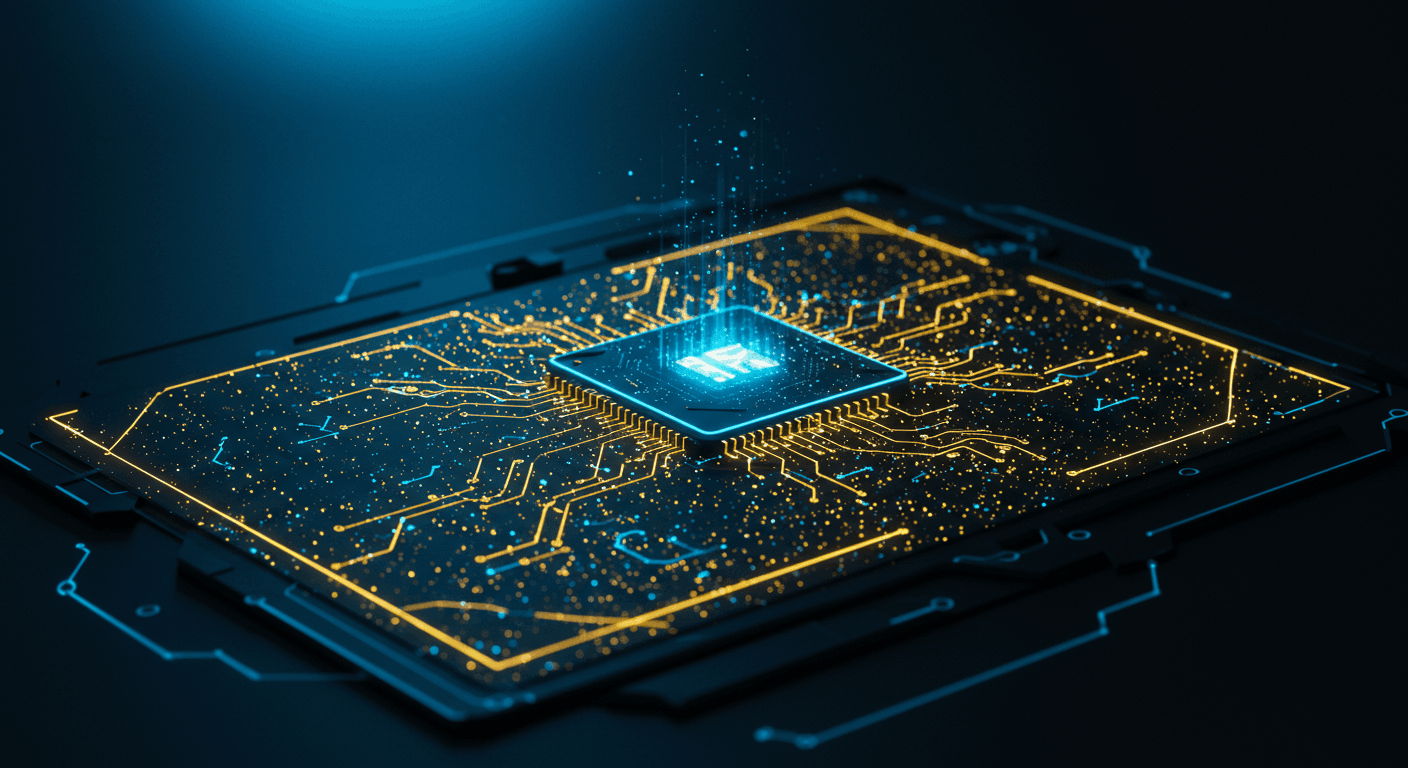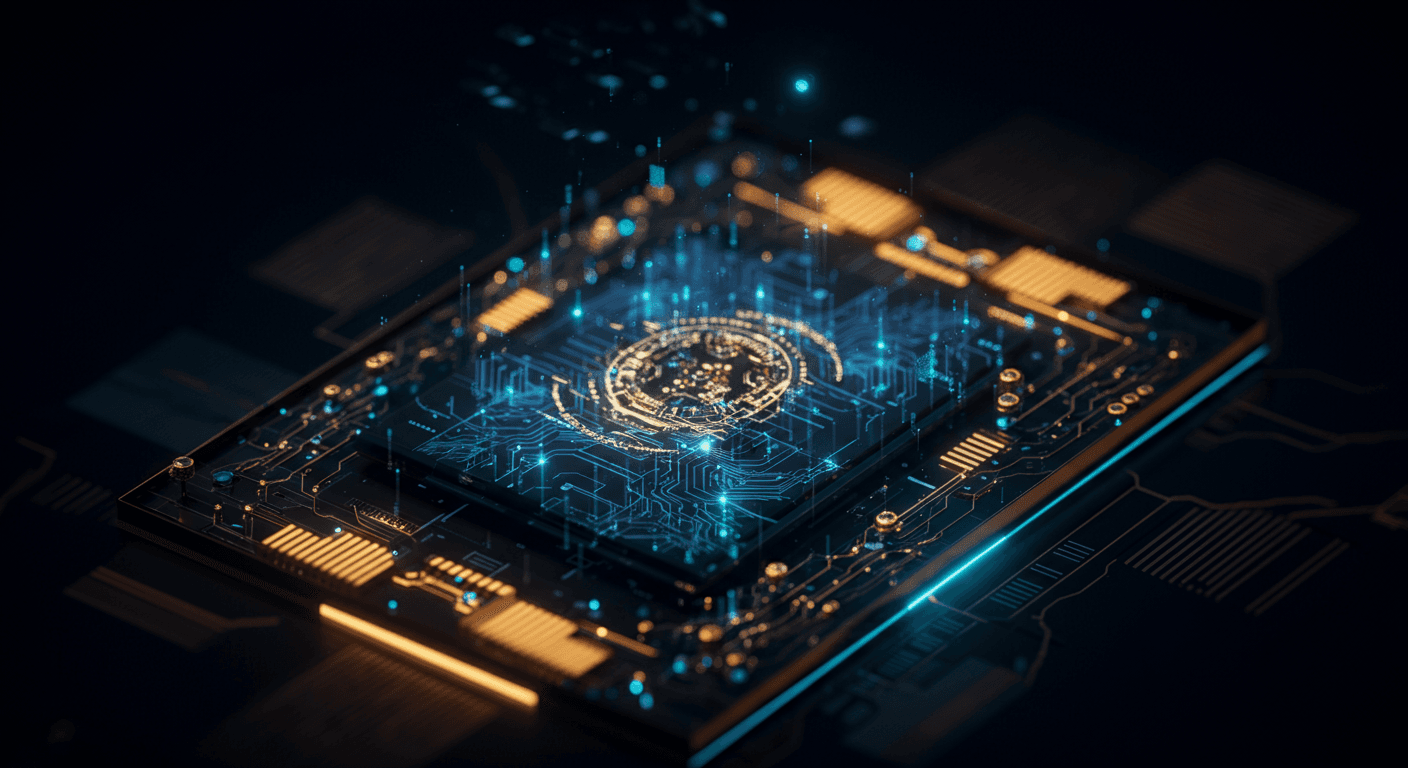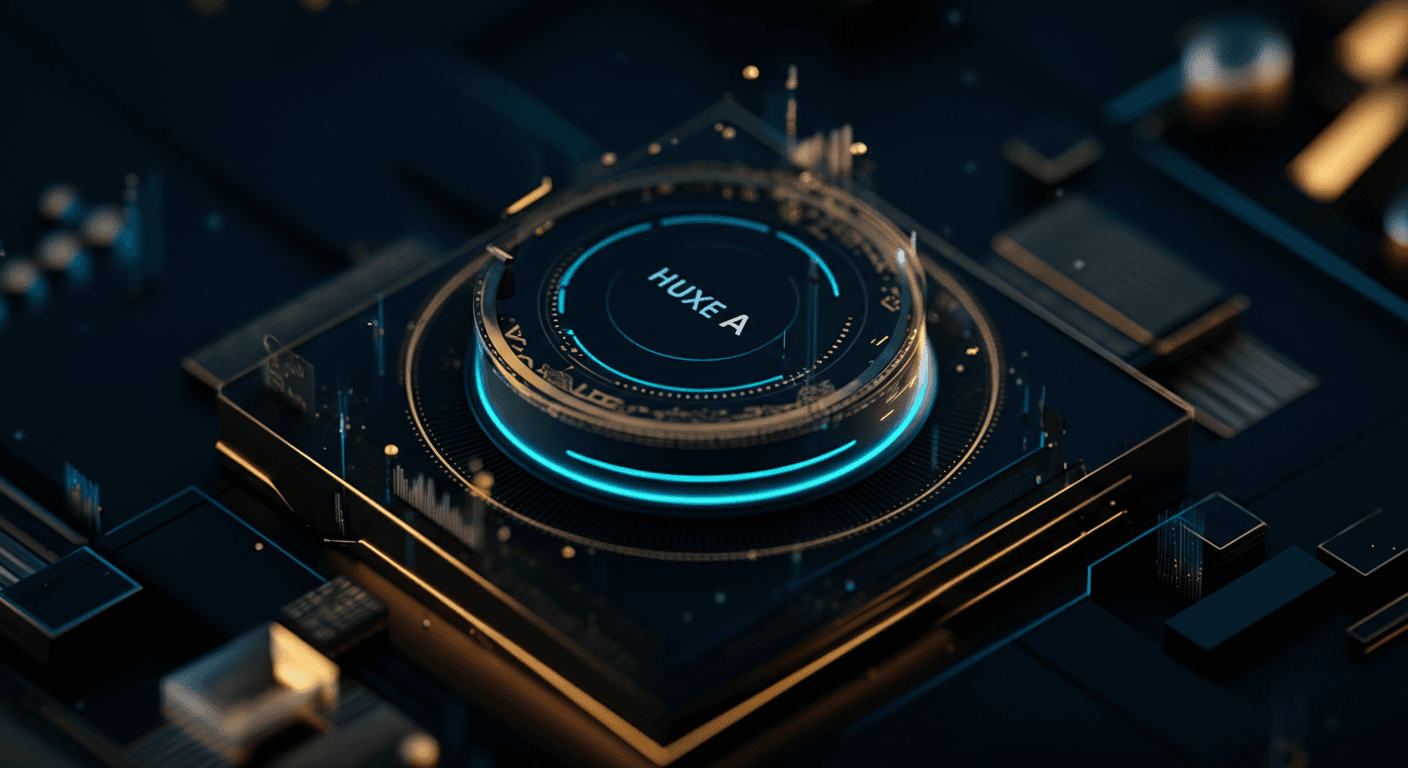AI Agents Unveiled: Demystifying Autonomous Intelligence and Its Revolutionary Impact

Here's a thought: Imagine your thermostat learned your schedule and anticipated your temperature preferences – that's the essence of an AI agent.
Introduction: Beyond the Hype - What Really Are AI Agents?
We're constantly bombarded with AI buzz, but let's cut through the noise and define what an AI agent truly is. At its core, an AI agent is an autonomous entity that uses artificial intelligence to perceive its environment, reason, and act to achieve specific goals. Think of it as a digital assistant with real decision-making capabilities. ChatGPT is an excellent example of a conversational AI, but lacks the autonomy to act independently.
AI Agents: Autonomy is Key
- Perceive: Gathers information from its surroundings (sensors, data feeds, etc.).
- Reason: Processes information to make informed decisions.
- Act: Executes actions to achieve its objective.
AI Agents: Beyond Chatbots and Automation
Distinguishing AI agents from chatbots and simple automation is crucial. While chatbots like LimeChat offer conversational interfaces, and automation tools streamline repetitive tasks, AI agents possess autonomy. This autonomy allows them to make decisions without explicit instructions at every step, unlike traditional programs.Busting the Myths
Let’s address some common misconceptions:- Not all AI agents are sentient; most are designed for very specific purposes.
- They aren't confined to complex systems; even a smart home device can be an AI agent.
The Transformative Potential
AI agents are poised to revolutionize numerous industries. From optimizing supply chains and personalizing healthcare, to automating complex financial transactions, the possibilities are vast. Expect to see more AI agents integrated into your daily life, augmenting human capabilities in unprecedented ways.Forget robots; we're entering the age of intelligent accomplices: AI Agents.
The Anatomy of an AI Agent: Core Components and Functionality
So, what is an AI Agent anyway? Think of it as a digital organism, designed to navigate a specific environment and achieve set goals. Like a Roomba, but potentially much, much smarter. At its core, an AI agent has four key components:
- Perception (Sensors): How the agent "sees" or gathers information. For a self-driving car, it's cameras and lidar; for a Chatbot, it's natural language understanding.
- Reasoning (AI Algorithms): The brain of the operation. This involves everything from simple "if/then" rules to complex machine learning models.
- Environment: The playground. This could be a physical space, a virtual world, or even the digital realm of customer service inquiries.
AI Techniques Powering Agency
The "reasoning" piece hinges on powerful AI techniques:
- Machine Learning: Including supervised (learning from labeled data), unsupervised (finding patterns in unlabeled data), and reinforcement learning (learning through trial and error).
- Natural Language Processing (NLP): Enables agents to understand and generate human language – think ChatGPT.
- Computer Vision: Allows agents to "see" and interpret images and videos.
Agent Architectures: Picking the Right Brain
AI agent architecture dictates how these components interact:
- Simple Reflex Agents: React directly to perceptions (e.g., a thermostat).
- Model-Based Reflex Agents: Maintain an internal state based on the history of perceptions.
- Goal-Based Agents: Seek actions that achieve specific goals.
- Utility-Based Agents: Optimize for the "best" outcome, even if the goal is unachievable.
- Learning Agents: Adapt and improve their performance over time.
The Perpetual Loop: Perceive, Reason, Act, Learn
The interaction loop is simple, elegant and relentlessly iterative. Each cycle builds on the last, increasing the effectiveness of the agent over time.
Handling the Messy Reality of Uncertainty
What about when things aren't clear-cut? AI agents often employ probabilistic reasoning, using techniques like Bayesian networks to manage uncertainty. However, current AI reasoning still struggles with situations outside its training data – the "long tail" of unforeseen events.
Ultimately, AI agents are transforming how we interact with technology, promising a future where machines are not just tools, but intelligent collaborators.
It's hard to overstate the revolutionary impact AI agents are poised to have on just about everything we do.
AI Agent Applications: Revolutionizing Industries and Everyday Life

From healthcare to cybersecurity, AI agents are not just automating tasks, but optimizing entire processes. Let's dive into some specific examples.
- Healthcare: Imagine AI agents diagnosing diseases with unparalleled accuracy, or creating personalized medicine plans tailored to your genetic makeup. 'AI agents in healthcare' are already showing impressive results in early detection and treatment. Heidi Health is one such tool that uses AI to assist with healthcare.
- Finance: Fraud detection powered by AI agents is becoming increasingly sophisticated. Algorithmic trading bots can analyze market trends faster than any human. 'AI agents in finance' are shifting the balance of power. Consider Mindbridge, an AI tool aiding in financial analysis.
- Manufacturing: Forget about traditional assembly lines. We're talking about AI-powered robotics and process optimization that dramatically increases efficiency.
- Customer Service: Remember waiting on hold for hours? Virtual assistants powered by AI are handling routine inquiries, freeing up human agents to tackle more complex issues. LimeChat offers an AI chatbot solution for customer service needs.
- Transportation: The promise of self-driving cars isn't just about convenience; it's about safer roads and more efficient logistics. 'AI agents in transportation' are learning to navigate complex environments.
- Cybersecurity: In the ongoing battle against cyber threats, AI agents are on the front lines, detecting anomalies and neutralizing attacks in real time.
Emerging and Future Applications
Beyond these established areas, AI agents are branching into exciting new territory. Think of personalized education, tailored to each student's learning style, or smart homes that anticipate your every need. What about AI-driven scientific discovery accelerating research across disciplines? The 'future of AI agents' is limited only by our imagination (and, of course, ethical considerations).
Ethical Considerations
As AI agents take on decision-making roles, we must consider the ethical implications. Are we creating biased systems? How do we ensure accountability? These are critical questions that demand careful thought and proactive solutions. We will explore more of these questions in the Learn section.
AI agents are not just a technological marvel; they're a transformative force reshaping our world, so get ready for increased efficiency, lower costs, and enhanced experiences – all driven by these increasingly intelligent entities.
Here’s how to turn ambitious AI agent concepts into reality, one line of code at a time.
Building and Deploying AI Agents: Tools, Platforms, and Best Practices
So, you're ready to build an AI agent capable of more than just simple tasks – an agent that can truly learn and adapt? Let's get you started.
AI Development Platforms and Frameworks
Think of these as your agent's playground:
- TensorFlow: A versatile open-source library particularly effective for complex tasks. Its robust ecosystem of tools makes it a solid choice. Check it out here: TensorFlow.
- PyTorch: Known for its dynamic computation graph and ease of use, it's a favorite for research and rapid prototyping.
- OpenAI Gym: OpenAI Gym isn't technically a platform, but a toolkit to develop and compare reinforcement learning algorithms. It is your sandbox for experimentation.
- Rasa: If you are building conversational AI Agents, Rasa is your platform. It helps in creating context-aware chatbots.
Programming Languages
These are the languages your agent will be speaking:
- Python: The undisputed king of AI. Libraries like NumPy and pandas make data manipulation a breeze.
- Java/C++: Ideal for performance-critical tasks where speed is essential. For deployment where Python's performance bottlenecks are a concern, these are excellent options.
Training and Evaluation
This stage molds your agent into a thinking entity: Data Collection: Garbage in, garbage out. The quality of your data matters*.
- Model Selection & Hyperparameter Tuning: Experimentation is key. Consider tools for code assistance like GitHub Copilot to accelerate this process. GitHub Copilot is an AI pair programmer that suggests lines of code and functions to help you code more efficiently.
- Performance Metrics: Define clear, measurable goals.
Deployment Challenges
Real-world deployment isn't always sunshine and roses:
- Scalability: Can your agent handle increased demand?
- Security: Protecting against adversarial attacks is critical.
- Reliability: Ensure your agent is robust and fault-tolerant.
Tips for Effective AI Agents
- Start with a clear goal. Define exactly what you want your agent to achieve.
- Prioritize data quality. High-quality data leads to better models and outcomes.
- Continuously monitor and improve. AI agents are never "finished"; continuous refinement is key.
AI agents are no longer science fiction; they're actively reshaping our world, one automated task at a time.
Advancements Fueling AI Agent Autonomy
AI agents are becoming increasingly sophisticated thanks to advancements in:
- Deep learning: Allowing agents to understand complex patterns and make data-driven decisions.
- Reinforcement learning: Enabling agents to learn through trial and error, adapting to dynamic environments.
- Explainable AI (XAI): Crucial for building trust, Explainable AI Agents make their decision-making processes more transparent and understandable. This is especially important for safety-critical applications.
Addressing the Challenges
While exciting, the rise of AI agents presents significant challenges:
- Safety: Ensuring AI agents act in a way that aligns with human values and avoids unintended consequences.
- Fairness: Preventing AI agents from perpetuating or amplifying existing biases, particularly in areas like hiring or lending.
- Transparency: Addressing the "black box" problem by making AI agent decision-making more interpretable and accountable.
Ethics and Societal Impact
The long-term impact of AI Agents on society and the economy is still unfolding. AI agents are software programs designed to perform tasks autonomously, often mimicking human behavior. As AI agents take on more decision-making roles, critical questions arise about accountability, job displacement, and the potential for misuse. The symbiotic relationship between humans and AI agents is key, prioritizing human oversight and collaboration over complete automation. Exploring categories such as Productivity Collaboration AI Tools can enhance workflows.
Ultimately, the future of AI agents hinges on our ability to navigate these challenges and ensure their responsible development and deployment.
Here's the thing about AI agents: their potential is only truly realized when they're put to work in the real world.
Healthcare: Diagnosing with Precision
AI agents are transforming healthcare by assisting in diagnostics. For example, an AI tool like Lunit INSIGHT CXR analyzes chest X-rays with incredible speed and accuracy. Lunit's agent is able to detect lung nodules or other abnormalities early on, which can speed up treatment and ultimately improve patient outcomes. What were the challenges? Massive amounts of data were required to train the agent properly, but the result was a substantial increase in diagnostic precision, leading to earlier intervention and improved patient survival rates.Finance: Automating Fraud Detection
In the financial sector, AI agents are excelling at identifying and preventing fraudulent transactions. Mindbridge is an AI tool capable of analyzing financial data to identify unusual patterns that could indicate fraudulent activity. The agent's implementation faced initial hurdles in adapting to diverse data formats and regional variations in fraud schemes. However, once trained, Mindbridge significantly reduced false positives and increased the detection rate of actual fraudulent transactions by over 40%, resulting in substantial cost savings for financial institutions.Manufacturing: Optimizing Production Lines

AI agents are being deployed to optimize production processes in manufacturing. Consider a tool for AI like Sight Machine which collects data from across the factory floor. This AI is designed to analyze production data to identify bottlenecks, inefficiencies, and potential equipment failures, allowing for proactive maintenance and process adjustments. Implementing such an agent required overcoming challenges related to data integration from legacy systems. However, the agent has resulted in measurable increases in production throughput and reductions in downtime – increasing ROI for businesses.
These cases highlight the measurable value AI agents are bringing to various industries. As AI technology continues to advance, we can expect to see even more innovative and impactful deployments of AI agents in the years to come, automating key tasks and boosting efficiency across diverse sectors. Are you ready to automate?
Harnessing the power of AI agents is no longer a futuristic fantasy; it's the present reality.
The Dawn of the Agent Age
AI agents bring a potent mix of autonomy and intelligence, automating tasks and optimizing processes across industries.
- Boosted Productivity: Imagine Taskmagic, which can automate virtually any repetitive task you do online. It's like having a tireless digital assistant.
- Smarter Decision-Making: From finance to healthcare, AI agents are analyzing data and providing actionable insights that drive better outcomes.
- Personalized Experiences: AI agents are enabling personalized customer service, education, and entertainment experiences. Think of a world where your learning adapts to your unique pace and style.
Ethical Considerations are Paramount
As we embrace AI agents, we must address ethical considerations:
- Bias: Mitigating biases in AI models is crucial for fair outcomes.
- Transparency: Understanding how AI agents make decisions is key to building trust.
- Accountability: Establishing clear lines of responsibility is vital for addressing unintended consequences.
The Future is Agentic
We encourage you to dive deeper into the potential of AI agents in your own field. The best AI tools are constantly evolving, offering ever-greater capabilities. Connect with the vibrant AI Enthusiasts community to share ideas and learn from others.
The age of autonomous intelligence is upon us, and it's time to explore its transformative potential, responsibly.
Keywords
AI agents, autonomous agents, intelligent agents, artificial intelligence, machine learning, NLP, AI agent applications, AI agent development, AI agent ethics, AI agent architecture, future of AI agents, building AI agents, deploying AI agents, types of AI agents, explainable AI
Hashtags
#AIagents #AutonomousAI #IntelligentAgents #ArtificialIntelligence #MachineLearning
Recommended AI tools
ChatGPT
Conversational AI
AI research, productivity, and conversation—smarter thinking, deeper insights.
Sora
Video Generation
Create stunning, realistic videos & audio from text, images, or video—remix and collaborate with Sora 2, OpenAI’s advanced generative app.
Google Gemini
Conversational AI
Your everyday Google AI assistant for creativity, research, and productivity
Perplexity
Search & Discovery
Clear answers from reliable sources, powered by AI.
Cursor
Code Assistance
The AI code editor that understands your entire codebase
DeepSeek
Conversational AI
Efficient open-weight AI models for advanced reasoning and research
About the Author

Written by
Dr. William Bobos
Dr. William Bobos (known as 'Dr. Bob') is a long-time AI expert focused on practical evaluations of AI tools and frameworks. He frequently tests new releases, reads academic papers, and tracks industry news to translate breakthroughs into real-world use. At Best AI Tools, he curates clear, actionable insights for builders, researchers, and decision-makers.
More from Dr.Was this article helpful?
Found outdated info or have suggestions? Let us know!


